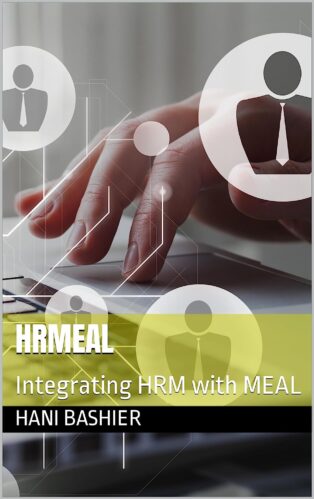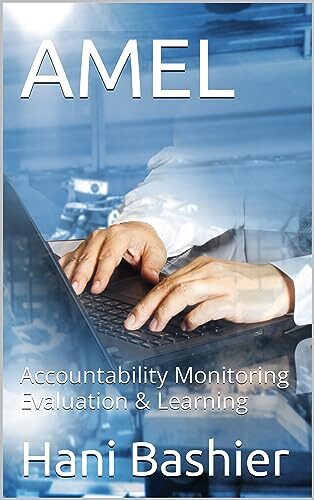Top Recommendations for Enhancing Monitoring, Evaluation, Accountability, and Learning (MEAL) Practices
Effective Monitoring, Evaluation, Accountability, and Learning (MEAL) practices are essential for organizations working in the development and humanitarian sectors. By providing accurate, timely, and relevant data on project performance and impact, MEAL practices enable organizations to make evidence-based decisions, enhance accountability, and foster learning and adaptation. This comprehensive guide presents top recommendations for enhancing MEAL practices, which include:
- Building a strong MEAL culture
- Developing a comprehensive MEAL framework
- Adopting participatory and inclusive approaches
- Investing in capacity building and professional development
- Embracing technology and innovation
- Ensuring data quality and integrity
- Strengthening feedback loops and communication
- Integrating gender and social inclusion perspectives
- Encouraging learning from failures
- Leveraging partnerships and collaborations
1. Building a Strong MEAL Culture
To enhance MEAL practices, organizations must first build a strong MEAL culture. This entails fostering a supportive environment in which staff and partners recognize the value of MEAL, actively engage in MEAL processes, and are committed to continuous improvement and learning. Key recommendations for building a strong MEAL culture include:
- Establishing a clear organizational vision and strategy for MEAL that sets out the organization’s priorities, objectives, and expectations for MEAL.
- Developing organizational policies, procedures, and guidelines that promote MEAL best practices and ensure consistency across projects and programs.
- Allocating sufficient resources, including financial, human, and technical resources, to support MEAL activities and initiatives.
- Recognizing and rewarding staff and partners who demonstrate commitment to MEAL and contribute to the organization’s learning and improvement efforts.
2. Developing a Comprehensive MEAL Framework
A comprehensive MEAL framework is the foundation of effective MEAL practices. Such a framework should provide a clear roadmap for MEAL activities, outlining the processes, tools, and methodologies that will be used to monitor and evaluate project performance and impact, and promote accountability and learning. Key recommendations for developing a comprehensive MEAL framework include:
- Conducting a thorough context analysis and stakeholder mapping exercise to inform the design of the MEAL framework and ensure that it is relevant and appropriate for the target context and population.
- Defining clear and measurable indicators, targets, and milestones for project performance and impact, aligned with the organization’s strategic objectives and the Sustainable Development Goals (SDGs).
- Selecting appropriate data collection, analysis, and reporting tools and methodologies, taking into account factors such as resource availability, data quality, and the needs and preferences of stakeholders and beneficiaries.
- Establishing a robust data management system that ensures data is securely stored, easily accessible, and effectively used for decision-making and learning.
3. Adopting Participatory and Inclusive Approaches
Participatory and inclusive approaches are essential for enhancing MEAL practices, as they ensure that the perspectives and experiences of stakeholders and beneficiaries are taken into account in the design, implementation, and evaluation of projects and MEAL processes. Key recommendations for adopting participatory and inclusive approaches include:
- Engaging stakeholders and beneficiaries in the development of MEAL frameworks, tools, and methodologies, ensuring that they are relevant, appropriate, and responsive to their needs and priorities.
- Establishing feedback and complaints mechanisms that allow stakeholders and beneficiaries to raise concerns, provide input, and hold organizations accountable for their actions and decisions.
- Promoting the active participation of marginalized and vulnerable groups in MEAL processes, ensuring that their voices are heard and that their rights and needs are addressed.
- Using participatory methods, such as focus group discussions, participatory rural appraisal, and community scorecards, to collect and analyze data on project performance and impact.
4. Investing in Capacity Building and Professional Development
Capacity building and professional development are crucial for enhancing MEAL practices, as they equip staff and partners with the skills, knowledge, and competencies required to effectively implement and manage MEAL processes. Key recommendations for investing in capacity building and professional development include:
- Conducting regular training and capacity-building activities on MEAL topics, such as data collection and analysis, indicator development, results-based management, and participatory evaluation techniques.
- Providing staff and partners with opportunities for professional development, such as workshops, seminars, and conferences, and supporting their participation in relevant networks and communities of practice.
- Establishing mentorship, coaching, and peer support programs to facilitate knowledge sharing and learning among staff and partners.
- Developing and implementing performance management systems that encourage staff and partners to continually improve their MEAL skills and competencies.
5. Embracing Technology and Innovation
Technology and innovation offer exciting opportunities for enhancing MEAL practices by streamlining data collection, analysis, and reporting processes, and providing new insights into project performance and impact. Key recommendations for embracing technology and innovation include:
- Exploring the use of digital data collection tools, such as mobile phones, tablets, and online surveys, to improve the efficiency and accuracy ofdata collection and reduce the risk of data entry errors- Leveraging data analytics, data visualization, and geographic information systems (GIS) to analyze and present data in more accessible, engaging, and user-friendly formats.
- Experimenting with innovative data collection methods, such as remote sensing, social media analysis, and crowdsourcing, to complement traditional data sources and provide new insights into project performance and impact.
- Ensuring that the adoption of technology and innovation is appropriate for the target context and population, taking into account factors such as digital literacy, connectivity, and data privacy.
6. Ensuring Data Quality and Integrity
High-quality, reliable, and accurate data is the cornerstone of effective MEAL practices. To ensure data quality and integrity, organizations should:
- Develop and implement data quality assurance processes, such as routine data audits, data validation exercises, and data quality assessments, to identify and address data quality issues.
- Train staff and partners on data quality principles and practices, ensuring that they have the skills and knowledge required to collect, analyze, and report high-quality data.
- Establish data sharing protocols and agreements that promote transparency, prevent data manipulation, and ensure the ethical use of data.
- Encourage a culture of data-driven decision-making, in which staff and partners recognize the importance of data quality and use data to inform their actions and decisions.
7. Strengthening Feedback Loops and Communication
Effective communication and feedback loops are essential for enhancing MEAL practices, as they ensure that information on project performance and impact is shared with stakeholders and beneficiaries, and that lessons learned are incorporated into project design and implementation. Key recommendations for strengthening feedback loops and communication include:
- Developing and implementing communication plans that outline the objectives, audiences, messages, and channels for sharing information on project performance and impact.
- Tailoring communication materials and messages to the needs and preferences of different stakeholder groups, ensuring that they are accessible, engaging, and culturally appropriate.
- Establishing regular feedback mechanisms, such as stakeholder meetings, progress reports, and learning events, to share information on project performance and impact, and to solicit input and feedback from stakeholders and beneficiaries.
- Integrating learning and feedback processes into project management and decision-making, ensuring that insights and recommendations from MEAL processes are used to inform project design and implementation.
8. Integrating Gender and Social Inclusion Perspectives
Gender and social inclusion perspectives are critical for enhancing MEAL practices, as they ensure that projects and programs are responsive to the diverse needs, priorities, and rights of different population groups. Key recommendations for integrating gender and social inclusion perspectives include:
- Conducting gender and social inclusion analyses during project design and MEAL framework development, to identify and address potential barriers to participation and access for different population groups.
- Developing gender-sensitive and socially inclusive indicators, targets, and milestones, to measure project performance and impact for different population groups and promote more equitable and inclusive outcomes.
- Ensuring that data collection, analysis, and reporting processes are gender-sensitive and socially inclusive, by disaggregating data by sex, age, and other relevant social variables, and by using participatory methods to capture the perspectives and experiences of marginalized and vulnerable groups.
- Promoting gender equality and social inclusion within MEAL teams and processes, by fostering an inclusive organizational culture, providing training and capacity building on gender and social inclusion topics, and ensuring gender balance and diversity in MEAL staffing and decision-making.
9. Encouraging Learning from Failures
Learning from failures is an essential component of enhancing MEAL practices, as it enables organizations to identify areas for improvement, make informed decisions, and adapt projects and programs to changing contexts and emerging challenges. Key recommendations for encouraging learning from failures include:
- Creating a safe and supportive environment in which staff and partners feel comfortable discussing failures, challenges, and areas for improvement.
- Encouraging reflection and learning from failures, through activities such as after-action reviews, project debriefings, and learning events.
- Documenting and sharing lessons learned from failures, both internally and externally, to promote learning and improvement across the organization and the wider development and humanitarian sectors.
- Integrating findings and recommendations from failure analyses into project design and implementation, ensuring that lessons learned are used to inform project strategies and activities.
10. Leveraging Partnerships and Collaborations
Partnerships and collaborations can play a crucial role in enhancing MEAL practices, by providing access to new knowledge, resources, and expertise, and by promoting learning and innovation. Key recommendations for leveraging partnerships and collaborations include:
- Identifying and engaging with potential partners and collaborators, such as other NGOs, government agencies, research institutions, and private sector entities, with complementary expertise, resources, and interests in MEAL.
- Establishing formal and informal networks and communities of practice, to facilitate knowledge sharing, learning, and collaboration on MEAL topics and initiatives.
- Collaborating on joint MEAL initiatives, such as joint evaluations, research projects, and capacity-building activities, to pool resources and expertise and maximize the impact of MEAL efforts.
- Advocating for the adoption






